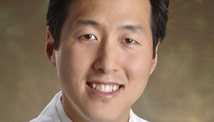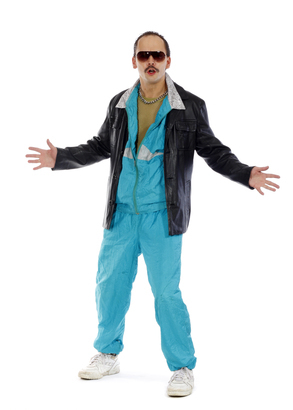 Whether you're a first year medical student or a practicing physican, there's a good chance you've asked yourself the quesion, "WHY the @#$% DID I GO TO MEDICAL SCHOOL?" Here are a few EXCELLENT reasons... and one bad one.
Whether you're a first year medical student or a practicing physican, there's a good chance you've asked yourself the quesion, "WHY the @#$% DID I GO TO MEDICAL SCHOOL?" Here are a few EXCELLENT reasons... and one bad one.
Just as the blisses of Christmas break was ending for most of us tortured souls who fly the banner of "medical student," and sail these uncertain scholarly seas, Uncommon Student MD got some serious traction with medical students around the world. I believe timing had a large part to do with the explosion in its popularity. Simply put, after christmas break a lot of medical people were thinking, “what am I doing here?!” - A case of mass buyers remorse.
It is an understandable and laudable question to be sure. If we spent half the time wrestling with the question of what to do with our lives that we spend OMGing and LOLing on Facebook, we would probably all be Nobel laureates (at the very least we wouldn’t use retarded abbreviations as much). There are a lot of bad reasons to go into medicine and there are a lot of good reasons not too… Conversely there are also many great reasons TO pursue medicine as well as a lot of bad reasons not too. Confused? Me too, but I do know that there are two sides to every pancake (perhaps three if you screwed the recipe up).
F. Scott Fitzgerald once said that, “The test of a first-rate intelligence is the ability to hold two opposed ideas in the mind at the same time, and still retain the ability to function.” So, even though I happened to agree with a few salient points made in the aforementioned article, I am trying to follow the advice of good old F. Scott and entertain the flip side of the coin. Maybe incite some wrath while I’m at it… one can only hope.
I am not sure, but I am of the opinion that there are as many good reasons TO go to med school as there are NOT to go (we should do a prospective cohort study to find out). At the very least I know there ARE more reasons than the sole example our friend Dr. Ali Binazir espoused. And so without further hemming and hawing… The top 10 reasons you SHOULD go to medical and 1 reason you should RUN WHILE YOU STILL CAN… in no particular order.
1. You will have a HUGE range of options at the end of your medical education.
To me flexibility and possibility in a career are of FAR greater importance than money, girls, fame, cars, illicit drugs, horses, blue suede shoes, kittens, my high score on angry birds, tickle-me-Elmos, or just any other temptation under the sun. Medicine opens up a WORLD of possibility and opportunity. It gives you access to a community of highly successful, highly educated, and highly motivated individuals and just for that reason alone it’s worth considering at least getting the Ol’ MD.
And I’m sure some old folksy physician has undoubtedly shared with you one of the most cliché medical career quotes. “There’s something for everyone in medicine (said in a tone of mock sincerity)” We roll our eyes at such clichés, but the truth behind them remains. There really is. It is a ridiculously broad field that is only getting broader and every personality type can find a suitable niche.
2. You will be headed in a definite direction toward a STABLE career choice.
“WOAH WOAH WOAH!” You say. “You just talked about how you’d sell your second appendix for the freedom to choose your destiny (also said in mock sincerity). Now normally, you’d be right. I wouldn’t include this in the pros section of a list about a career. The one augmenting factor that gives credence to this argument in my mind is the fact that it is one of the few careers that gives you a measure of stability WHILE giving you options… AT THE SAME TIME. It’s like having your lasagna and eating it too, or something like that.
It’s remarkable really. It’s kinda like waiting in this huge long line with a bunch of checkpoints. The line isn’t excruciating for the most part, but it’s also not what you’d hoped it would be (med school). At each checkpoint you are expected to perform a certain task that you’re not sure will have much bearing on what you’ll eventually be doing after the line ends, but the challenge is somewhat fun in and of itself. All in all it’s not a bad line, except for the fact that’s it’s so darn expensive. While in the line you might even think about robbing banks to pay for the opportunity to stand in this line.
At the end of the line (med school graduation), and provided you have performed satisfactorily at the checkpoints, there are about 100 new lines to choose from (residencies). The checkpoints in these lines seem much more fun and lines are much shorter. So you choose one. As you proceed in this line you start feeling better about all this line standing (or, if you haven’t started robbing banks, you have rationalized that you have no other option but to finish this line standing so you can pay for the line standing).
Then the line ends (Docta time!) and you realize that all these checkpoints have given you a highly marketable skill set that people who opted out of the line don’t have… and since you’ve most likely been robbing banks on nights and weekends while line standing, you’ve paid off all your line standing time already. (I jest… sorta)
3. You have the opportunity to help people and that WILL make you happy, unless you’re heartless.
This one needs little explanation. As a Christian who attempts to practice my faith, it is near the top of my list of “pro” reasons. Most Doctors agree, with little exception, that they enjoy the helping people aspect of their career. I have seen several lists that rank pediatricians at the top in terms of career satisfaction and this list actually puts them at 4th among all career choices. This has got to be directly correlated with the human service aspect of being a physician. Since it’s pediatricians, we should be able to infer conclusively that it’s definitely not the money aspect. (I don’t jest)
4. You will be part of a noble profession
Always will be. No matter what physicians say about how “patients these days don’t treat me with the respect my spiffy white coat and expensive stethoscope deserve,” it is and always will be among the most respected professions. People aren’t bigger boneheads to their physicians these days… people are just bigger boneheads in general.
5. You will never starve as a physician.
Granted, starving isn’t a huge problem for most of us here in the good ol’ USA, but you get my point. Even though the remuneration may indeed be more dubious (as was pointed out by Dr. Ali Binazir) than it has been in the past for physicians, we are still in the top .0002437 whatever percent of earners in the world and the job security that a medical career affords makes the remuneration seem a little less dubious in times like these.
6. Your market base is everyone… eventually.
Everyone (especially people in the good ol’ USA) eventually gets sick and needs a doctor. It’s a fact of life that is not likely to change soon, unless we all start putting a lot more wheatgrass on our big macs. A good entrepreneur friend of mine said that a business venture is only worth undertaking if your market base is large enough AND the need you’re fulfilling for your market is an “arterial bleed.” I don’t think I need to explain the joke here… or the truth.
7. You will have a globally relevant skill set.
If you’re like me, and traveling is one of the overriding passions of your life, I can think of few other careers that have as much demand as many places in the world as being a physician. There’s also a remarkable amount of geographical technical overlap. An appendectomy is an appendectomy, whether it’s in Athens Greece or Athens Georgia. If you do something like locum tenens here in the USA, you can set yourself up for a truly nomadic lifestyle AND support yourself while you’re at it. You would then also be able to take off months at a time to travel internationally or start your own business on the side.
8. You will have myriad business opportunities in medicine.
Victor Perlroth M.D., M.B.A. is a good example of what I’m talking about. He said that the one of the pivotal lessons he learned from his mentor Paul Cook was that, “there is money to be made at the intersection of disciplines.” - That’s brilliant. Think about it for a second…. Okay now continue reading. - Medical entrepreneurship and technology is a huge industry with a lot of money behind it and the opportunities are truly endless for enterprising souls. Just the fact that HAVING your MD gives you access to a huge network of people who have residual income for investing is a huge business asset.
My Dad is an oral surgeon that started his own practice and he recently pointed out to me (and I suppose it’s a given) that the process of starting his own practice was a HUGE business venture and has been very fulfilling for him from a business perspective. There are many physicians who have made careers out of helping other physicians start their own successful practices in a specific niche (consults). The opportunities are legion.
It’s also a sadly funny, but universally true fact that having that MD behind your name makes people THINK you know what you're talking about, even in completely unmedical situations. This can be very useful in just about ANY undertaking.
9. You get to wear pajamas to work.
Everyone holds up the “wearing pajamas to work” thing as the gold standard for having arrived at job nirvana, and let’s be honest… scrubs ARE pajamas.
10. Medicine gives you perhaps the most unique set of professional privileges of any profession… ever.
This hit me full force while I was busily cutting a cadaver’s heart out one day during anatomy lab. I thought, “This kind of stuff is normally reserved for serial killers and Germanic barbarians and under any other circumstance I would go to prison for doing what I am doing.” While I have no ambitions to be a Germanic barbarian, serial killer, OR to go to prison, it is truly amazing that physicians and medical students have the privilege of doing stuff like that.
People invite physicians into the most forbidden places humanly conceivable (elbow deep in their small bowels for one), and no other line of work I can think of throws one into such truly interesting (borderline mental) circumstances. The depth of sincerity and vulnerability that people show their doc is remarkable. This is another aspect of being a doctor that I have heard many long-time docs hold up as one of the most treasured aspects of their careers. Human beings are amazing.
And now…. (drum roll).... THE SINGLE BEST REASON YOU SHOULD NOT GO TO MEDICAL SCHOOL.
Ready for it?
Okay.
Here goes.
You want to make barrels of money with a modest amount of work.
If this is your goal, you are barking up the wrong tree my friend. You might very well make a ton of money… but the margins are becoming slimmer and the people who are doing it are becoming the exception rather than the rule. If you ARE making a ton of money in medicine (derm, radiology, optho, some surgical subspecialties) you more than likely will have worked VERY hard during medical school to position yourself for that specialty and many of these “rich” docs work 60+ hours a week to be “rich.” If you are a clinical primary care physician that works sane hours you will not be seeing the “big bucks” that many people associate with physician-hood.
Also the compensation relative to the amount of hours worked, opportunity cost loss, etc. is deceptively “low”, especially in a primary care setting. Ben Brown MD has a very interesting, well-researched and enlightening article on the subject. Er physician, author, and blogger Kevin Pezzi MD also has a great example of what I'm talking about on his blog. He compares the actual lifetime income of a UPS driver to the typical earnings of a primary care doctor. It's an interesting read to be sure.
If you are in it for the love of it, or for a mixture of the reasons above, all this will be fine with you. As I stated above, you’re not gonna be hurting for coin. You just need to have your eyes wide open about the fiscal realities before you go into it. Money is a terrible reason to get into any venture if it is the soul motivator, but this advice doubles or triples in pertinence when you’re talking about something that involves as much startup investment in terms of both time AND money as the infamous MD degree does.
So there it is. Get your guns out and fire back. I’d love to here your thoughts… on my thoughts. Also, check out the lively discussion that is going on in the comments section of The Top 10 Reasons You Should Not Go To Medical School... And The Single Reason You Should.
 Read Anthony Youn MD's article on CNN here
Read Anthony Youn MD's article on CNN here

 Yo! Post a Comment
Yo! Post a Comment









"I wouldn't do it twice, but I would not 'not' do it once."
- ZDoggMD